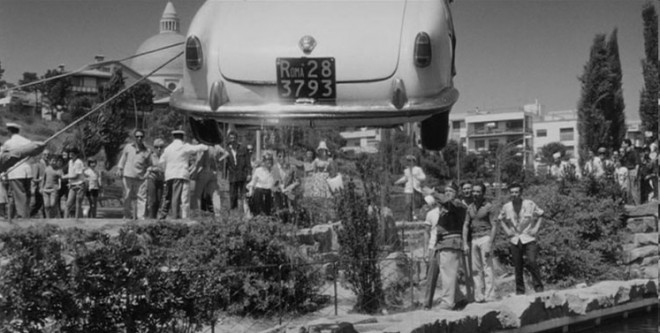“What difference does it make whether I exist?” — a prostitute
Trenchantly, beautifully written and directed by Seyyed Reza Mir-Karimi (Critics Week Grand Prize, Cannes; best director, Tokyo), Zir-e noor-e maah is a sheltered pilgrim’s progress amidst his first exposure to life’s harsh realities. The theft of his vestments by Joujeh, an Artful Dodger, sets seminarian Seyyed Hassan on a search in and around Tehran for the little thief. Thus he finds himself in a community of the homeless under a bridge, where he sees the needy recipient of his clerical attire, who thinks he, Seyyed, is a thief for trying to appropriate it. Here, people are starving and must go unsheltered. Seyyed brings food and is treated like a hero. He is told: “Everybody had forgotten us under the bridge.”
In this homeless camp, an impromptu dance insists on the possibility of life’s joy even at the edge of life: Soon afterwards, the camp is officially raided, swept clean—a police action—rather than having a social remedy applied.
Possibly inspired by one of the episodes of Roberto Rossellini’s Paisà (1946), and with echoes, as well, of Vittorio De Sica’s Bicycle Thieves (1948), Reza Mir-Karimi’s second feature generates compassion for the poor and the dispossessed, those “under the bridge,” one of whom recites the “Good Pilgrim” speech from Romeo and Juliet. But the style of the film—dark, cool, finely chiseled—more closely resembles traditional Iranian than it does Italian Neorealist. Seyyed Hassan’s path, out of the shadow of his father’s directive, guides us and has the “feel” about it of an epic journey in miniature. Along with this young man who is ambivalent about becoming a mullah, audiences are urged to address the plight of the most unfortunate members of Iranian society.
